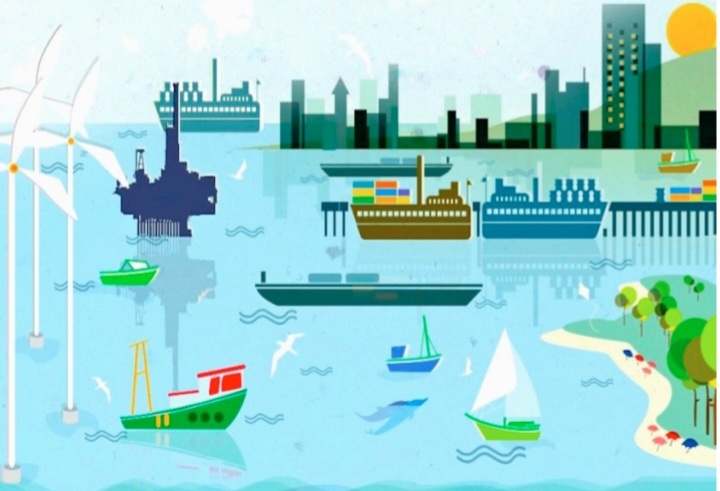Utilising the Blue Economy Ministry for Nigeria’s Economic Growth

By Obiabin Onukwugha
The recent establishment of the Marine and Blue Economy Ministry by President Bola Tinubu has sparked reactions and discussions within the marine sector, among environmental stakeholders, analysts, and experts.
Nigerian Maritime Administration and Safety Agency (NIMASA) Director-General, Dr. Bashir Jamoh, expressed his approval of the Ministry’s creation, stating that it will invigorate the Nigerian economy through the effective utilization of the Blue Economy concept, which he believes is long overdue.
Jamoh’s enthusiasm stems from the fact that the global community, since the Rio Earth Summit in 2012, recognizes the potential of the sustainably managed marine environment to foster socio-economic development, create business opportunities, and generate jobs.
The Blue Economy, as defined by the World Bank, involves the sustainable utilization of ocean resources for economic growth while preserving the ocean ecosystem’s health.
The United Nations also defines it as a range of economic activities related to oceans, seas, and coastal areas, with emphasis on sustainability and social equity.
The significance of the blue economy is underscored by the fact that oceans contribute approximately $1.5 trillion to the global economy each year, with an estimated asset value of $24 trillion.
Furthermore, nearly three billion people rely on ocean resources for their livelihoods, and the blue economy generates $300 billion for the African continent, supporting 49 million jobs and providing sustenance to over three billion individuals.
The creation of the Marine and Blue Economy Ministry holds great potential to address Nigeria’s economic challenges, especially as it strives for economic recovery. Despite its abundance of natural resources, Nigeria has struggled to transform them into wealth that benefits its population.
Key economic activities within the blue economy sector include fishing, coastal leisure and tourism, shipbuilding, offshore oil and gas exploration, and shipping.
Emerging industries, such as deep-sea mining, biotechnology, aquaculture, offshore renewable energy, and blue carbon sequestration, are gaining momentum.
However, concerns have been raised by Dr. Nnimmo Bassey, Executive Director of the Health of Mother Earth Foundation (HOMEF).
He views the creation of the Marine and Blue Economy Ministry as potentially detrimental to the Niger Delta environment and aquatic life due to the region’s extensive oil and biodiversity-rich coastal areas.
Bassey fears that this move could exacerbate environmental degradation rather than benefit the local population.
Despite these concerns, the establishment of the ministry carries immense potential to transform Nigeria’s economy.
The Nigeria Maritime Administration and Safety Agency (NIMASA) oversees the Deep Blue project, which aims to enhance Nigerian seaports’ economic activities.
Nigeria’s six seaports contribute significantly to the country’s revenue, generating billions of naira and offering employment opportunities.
The success of the Marine and Blue Economy Ministry will depend on the government’s ability to enact relevant laws and policies that prioritize the well-being of the people and address both economic and environmental challenges.
